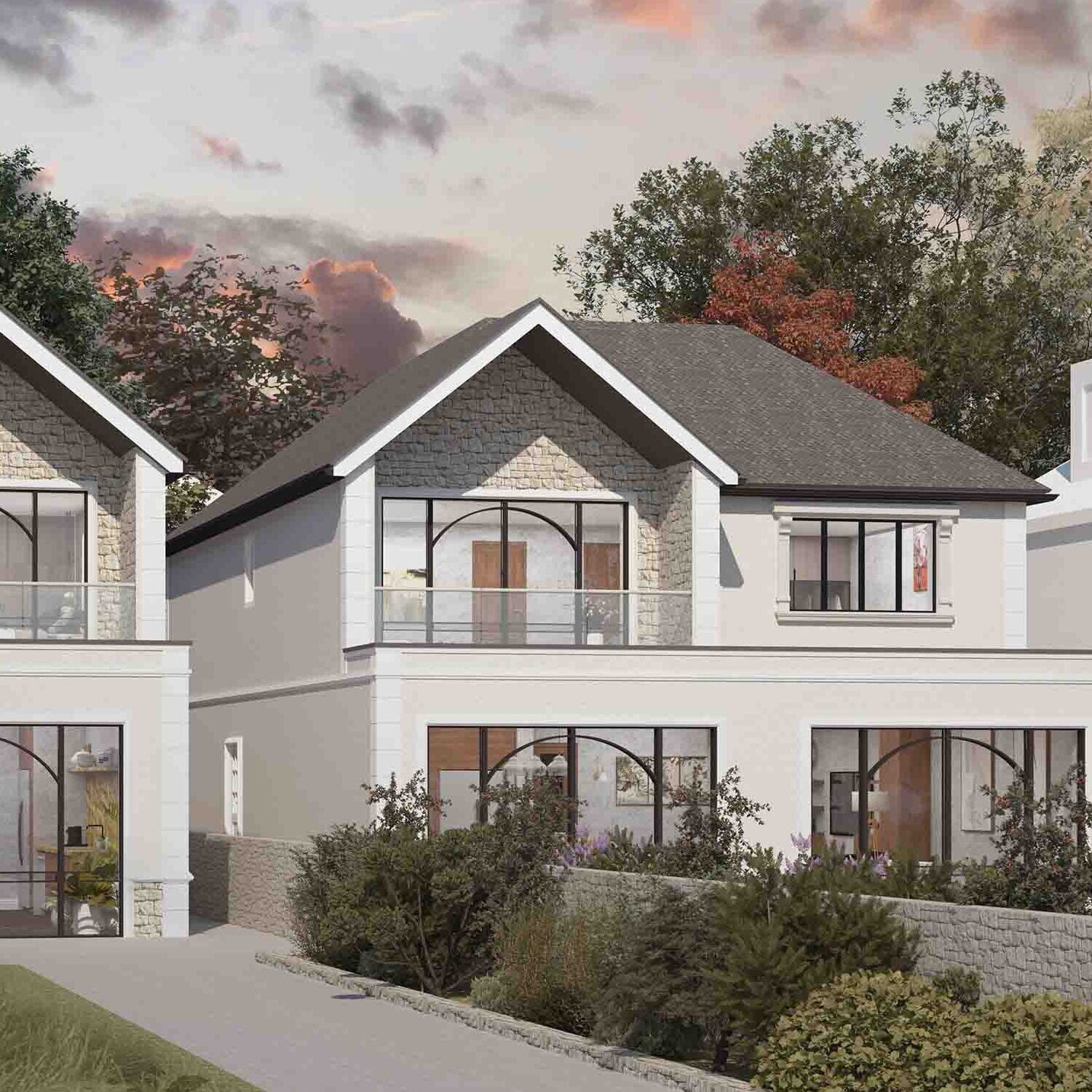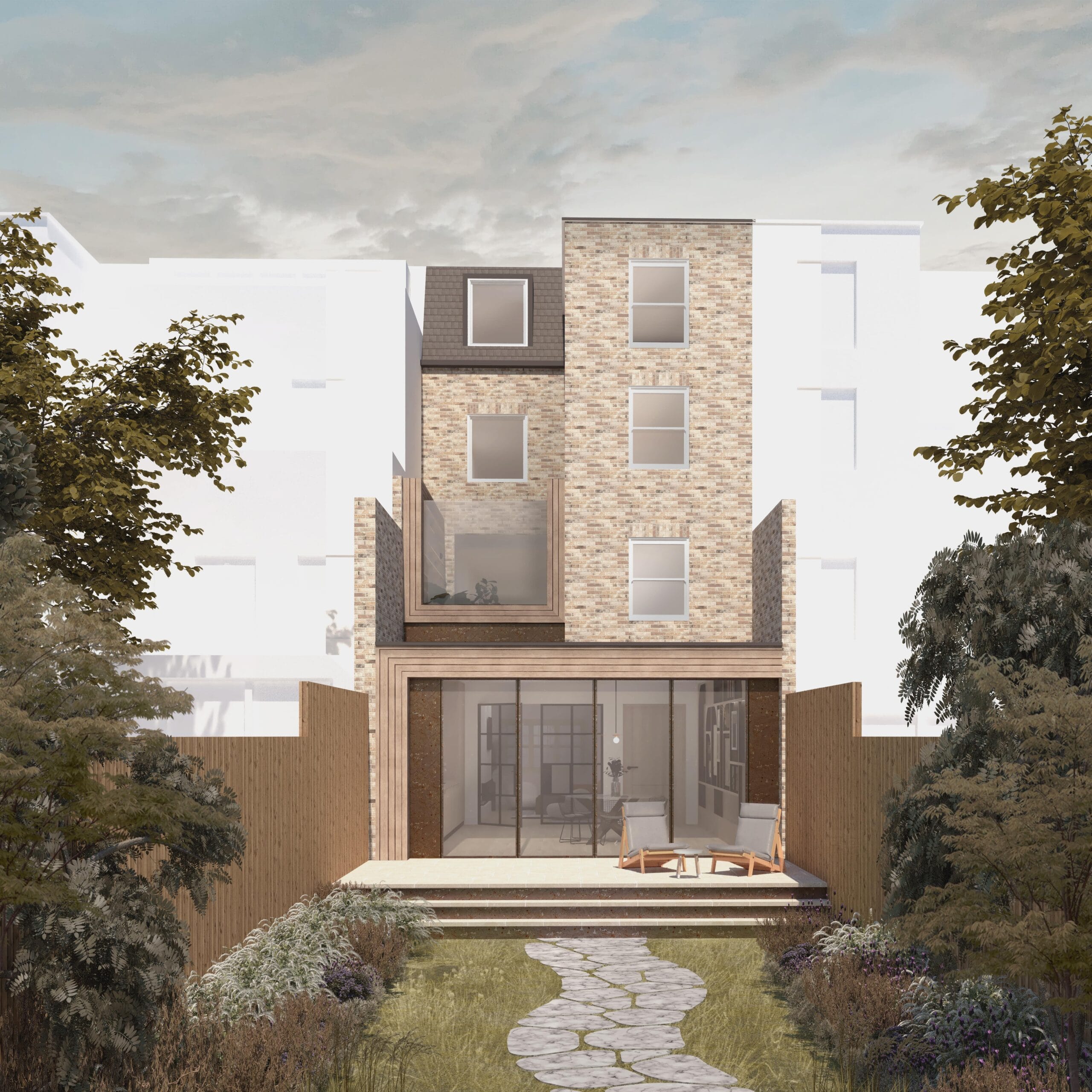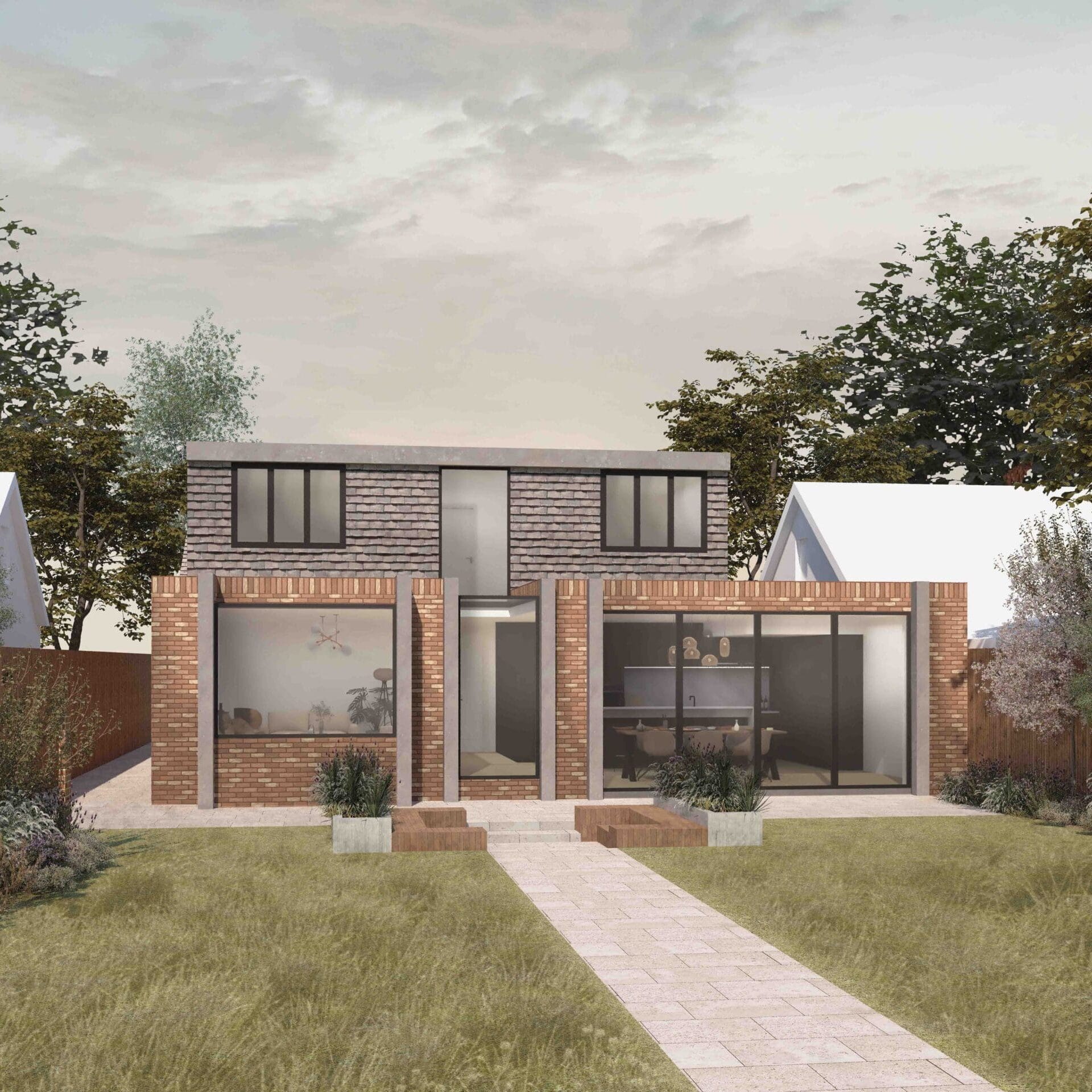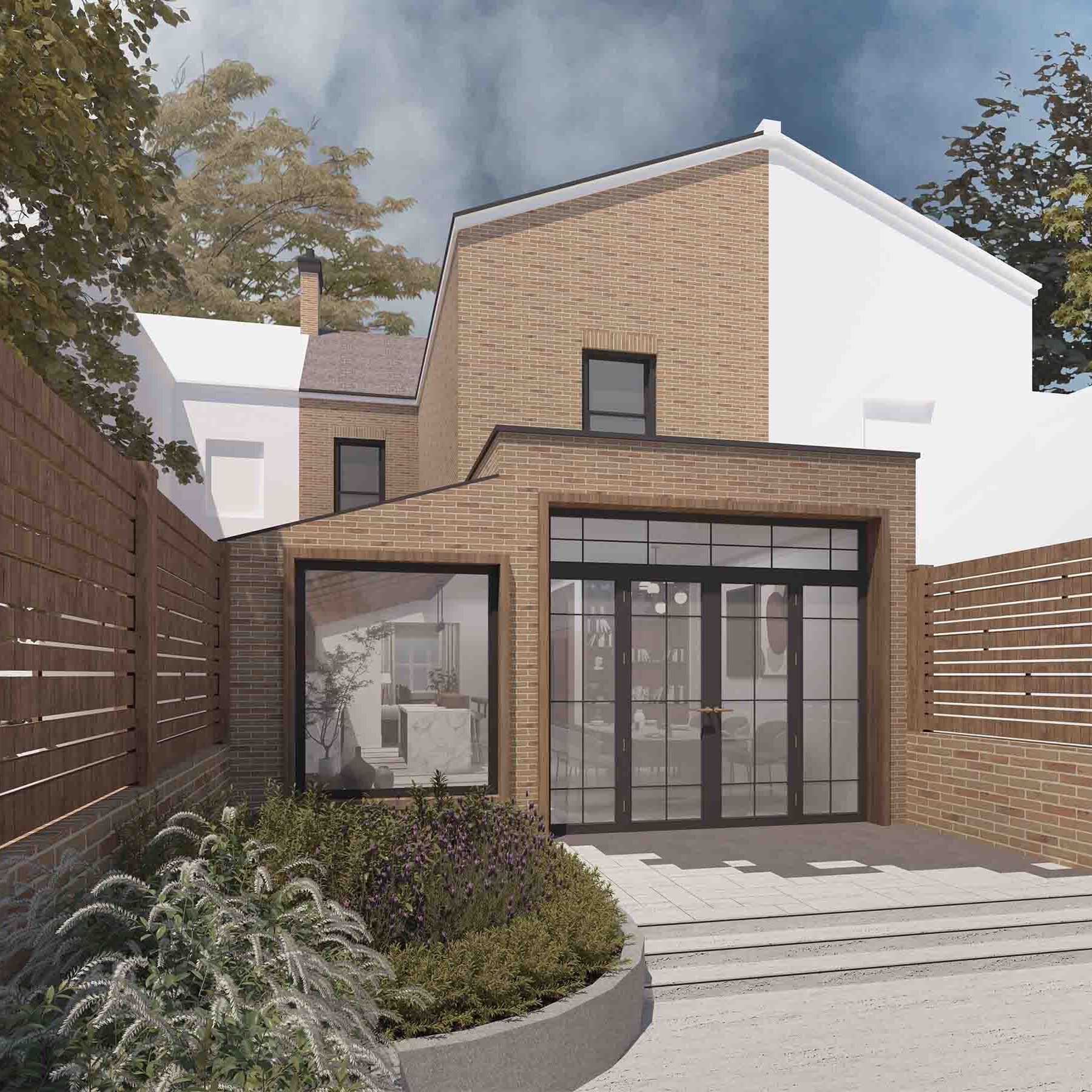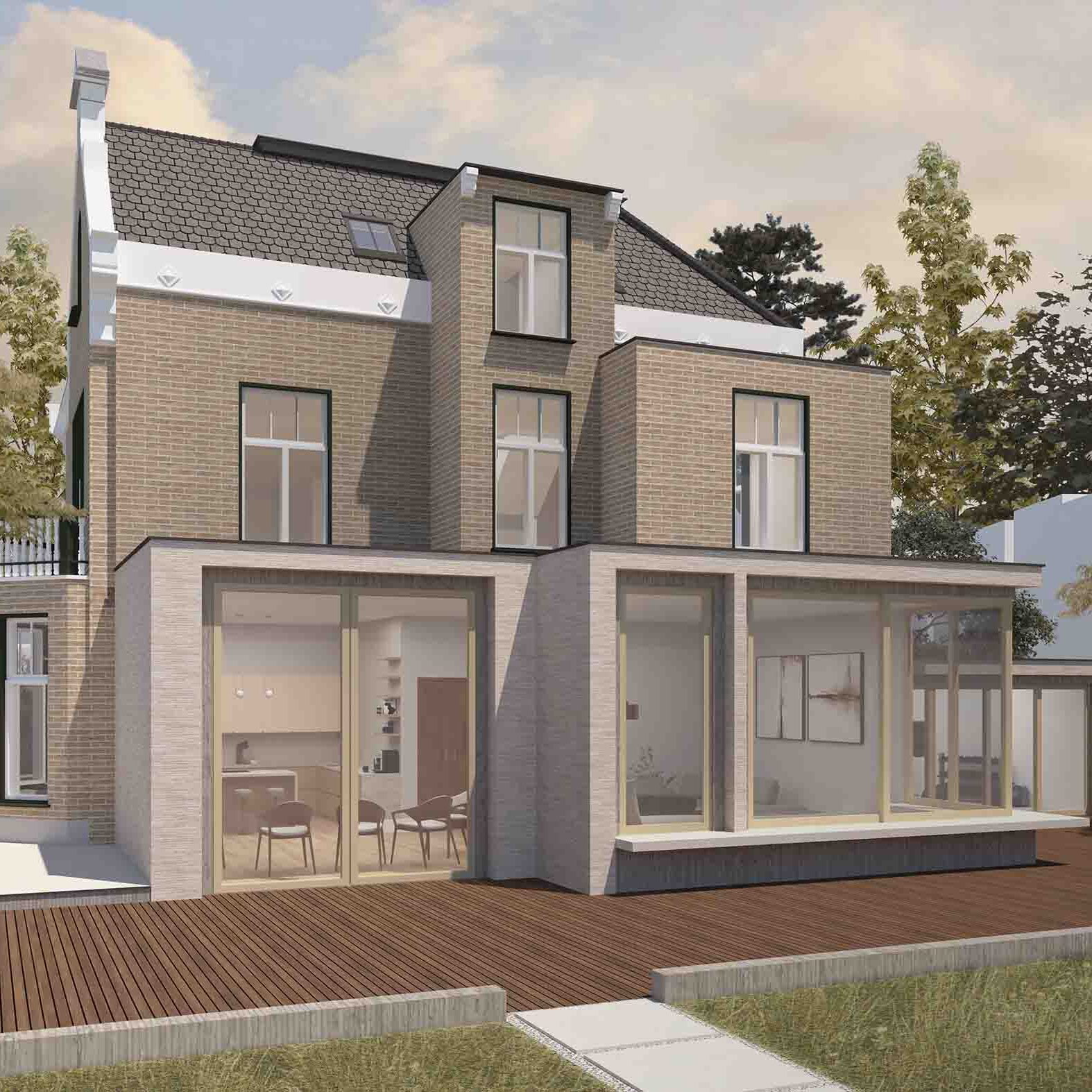Kitchen Extension Cost [UK Guide 2026]
When thinking about enhancing your home, extending your kitchen can be one of the most rewarding upgrades. Not only does it give you more functional space, but it can also significantly increase your home’s value. However, a common question is: “How much does a kitchen extension cost?” The truth is, the costs can vary widely based on your design choices, location, and the scope of work. To help guide you through, we’ve put together this 2026 guide on kitchen extension costs, outlining what you can expect from start to finish.
In This Article:
1. What Influences Kitchen Extension Cost?
2. Average Costs for Kitchen Extensions in 2026
3. Structural Work and First Fix Costs
4. Budgeting for Kitchen Fixtures and Appliances
5. Kitchen Extension: Single vs. Double Storey
6. Cost of New Kitchen: What to Expect and How to Budget
7. VAT, Permissions, and Additional Fees
8. Kitchen Extension Hidden Costs
9. Budget Contingency Tips – Kitchen Extension Cost
10. Final Thoughts & Next Steps
What Influences Kitchen Extension Cost?
There’s a range of factors that influence the cost of extending your kitchen, so it’s important to be aware of them before starting. Here are the key ones:
Size and Design Complexity
The bigger the extension, the more you’ll pay. But it’s not just about size. A basic, simple design will cost less compared to a more complex layout featuring bespoke cabinetry, skylights, and luxury finishes.
Materials
Materials play a huge role in the overall cost. Standard materials like uPVC windows and standard brickwork are more affordable, whereas bi-fold doors, marble worktops, or reclaimed wood flooring will push up the price.
Structural Requirements
If your extension involves removing structural walls or adding steel beams for support, this will increase the cost. Structural engineers may need to be involved, and unexpected issues, such as poor foundations or damp, could escalate the budget.
Labour Costs
In London and the South East, tradesmen’s fees are typically higher than in other parts of the UK. Skilled builders, electricians, and plumbers charge a premium due to the high demand in these areas.
Permissions and Red Tape
If your extension requires planning permission or structural calculations – which is most cases – you’ll need to factor in these costs too. Most kitchen extensions fall under permitted development rights, but it’s always wise to double-check with your local council.
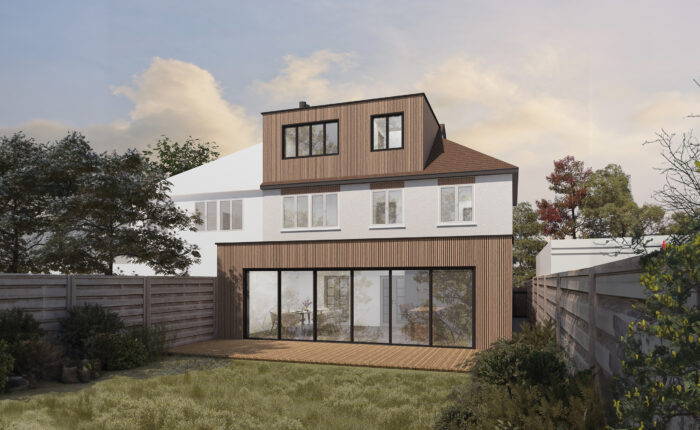
Contemporary 3 Metre Kitchen Extension – Scarlet House
Average Costs for Kitchen Extensions in 2026
So, what can you expect to pay for your kitchen extension this year? Below is a rough guide, based on typical kitchen extensions:
- Low-range kitchen extension (15-20m²): £50,000 – £70,000
- Mid-range kitchen extension (20-30m²): £70,000 – £90,000
- Quality kitchen extension (30m² and above): £90,000 – £120,000+
These estimates cover the shell, basic finishes, and standard kitchen appliances. They do not include extras like VAT, high-end materials, or bespoke kitchen fittings. For more generic extension cost examples, see our other blog on house extension cost.
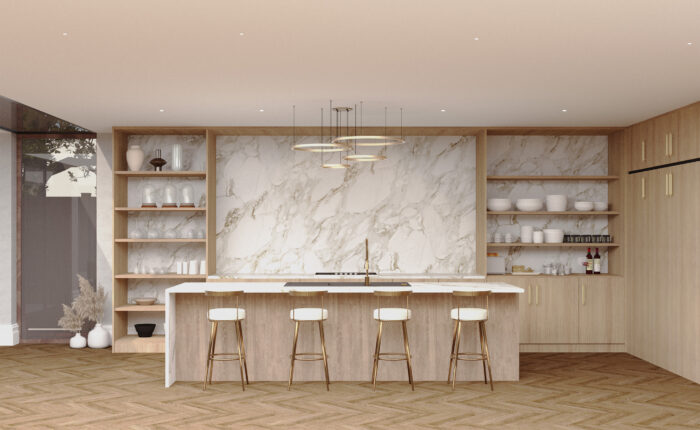
High End Kitchen Extension with Minimalist Kitchen Design – Trinity House
Structural Work and First Fix Costs
The first stage of your kitchen extension involves laying the groundwork and ensuring the structure is sound. This can be divided into:
- Foundations and structure: Laying foundations, constructing walls, and installing steelwork typically make up 50-60% of the overall cost.
- First fix electricals and plumbing: Installing wiring and plumbing systems, getting everything ready for appliances and lighting.
This is where you’ll spend most of your budget, especially if structural changes like removing walls or relocating pipes are involved. On average, expect to pay £2,500-£3,500 per square metre for this phase to make the extension watertight.
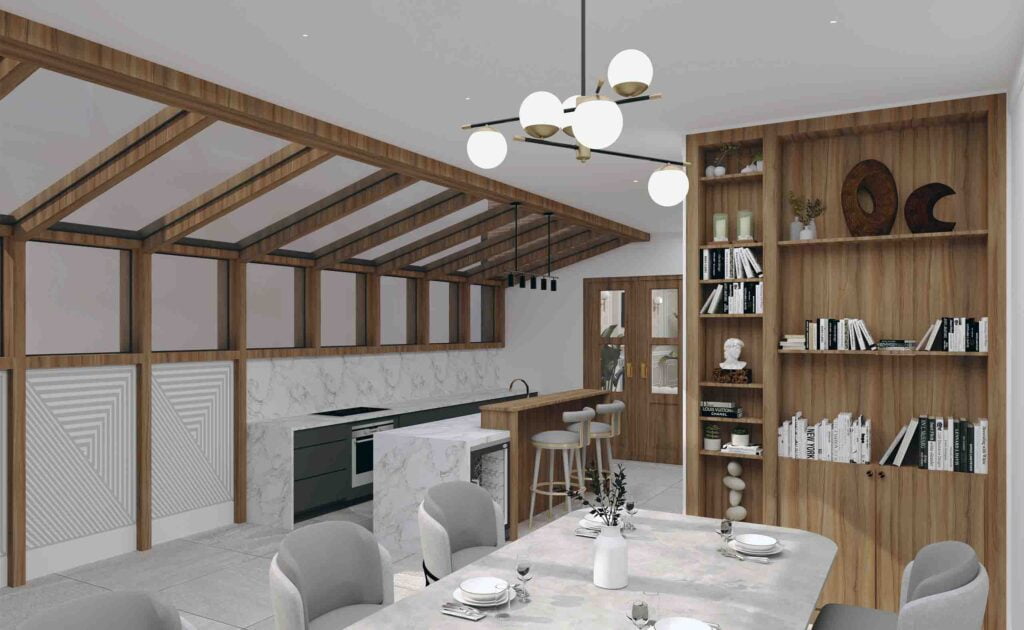
Minimalist Timber Kitchen Extension – Walnut House
Budgeting for Kitchen Fixtures and Appliances
The cost of kitchen fittings & appliances can vary significantly depending on the quality of materials and appliances you choose. Here’s a breakdown:
- Low-end kitchens (e.g., Howdens or IKEA): £15,000 – £25,000. Basic cabinets and mid-range appliances.
- Mid-range kitchens (e.g., Wren, Hacker): £25,000 – £50,000. Better-quality finishes, integrated appliances, and stylish countertops.
- High-end kitchens (e.g., Tom Howley or bespoke kitchens): £50,000+. Custom cabinetry, premium appliances, and luxury worktops like marble or quartz.
The fixtures and appliances are where most homeowners tend to overspend, so it’s essential to have a clear budget in mind.
If you’re looking for a more cost-effective way to get a high-end appearance, many companies offer a doors-only service, guaranteeing compatibility with well-known brands such as Howdens or Ikea. This way, homeowners like you can benefit from the low cost of off-the-shelf carcasses with the luxurious appearance of a quality kitchen.

Sleek Open Plan Kitchen Extension – Dash House
Kitchen Extension: Single vs. Double Storey
Deciding between a single storey extension or double storey extension is crucial, and each has different cost implications:
- Single storey kitchen extension: Costs range from £50,000 to £75,000+ for a 20m² space, including the shell, structural work, and standard fixtures.
- Double storey extension: Expect to pay £80,000 to £130,000+, but it gives you extra space upstairs without doubling the price.
Though a double storey extension is more expensive overall, it can be more cost-effective per square metre if you’re looking for a long-term value increase in your home.
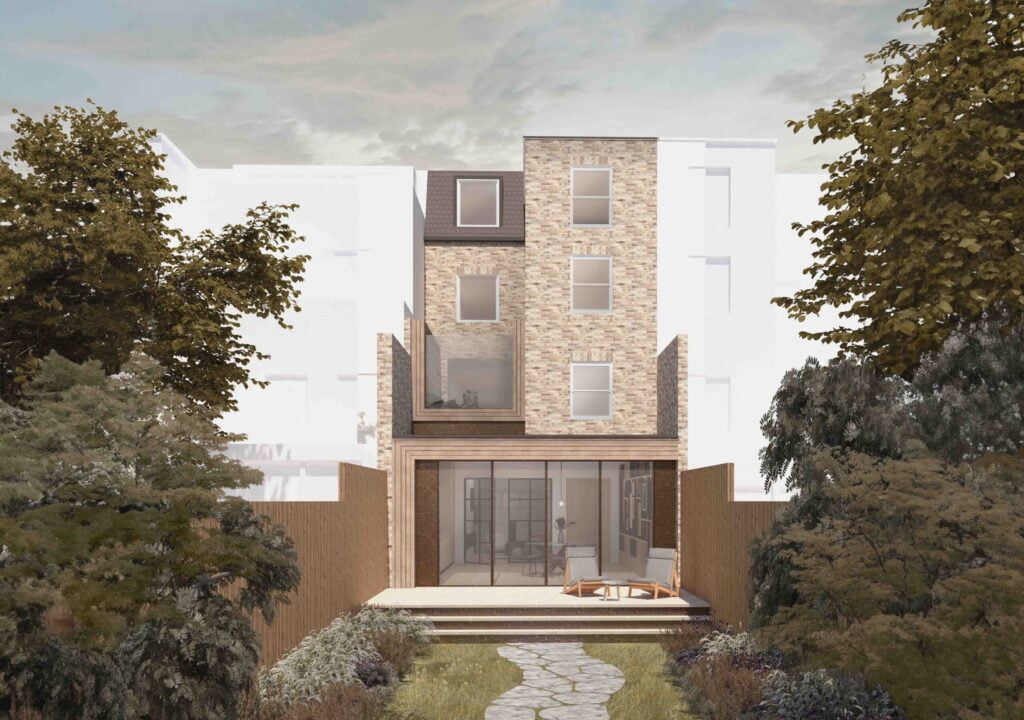
Double Storey Kitchen Extension – Copper House
Cost of New Kitchen: What to Expect and How to Budget
When planning a kitchen renovation, costs can vary widely depending on materials, brands, and design choices. Here’s a breakdown of some of the key costs to help with budgeting:
1. Kitchen Brands & Cabinets

2. Kitchen Flooring Costs

3. Kitchen Appliance Costs

4. Making Affordable Look Luxury
- Affordable Materials: Use laminate or quartz that mimics natural stone.
- Mix High and Low: Invest in a standout appliance or feature piece.
- Luxury Finishes: Opt for rich colours, premium-looking hardware, and smart lighting for an upscale feel.
VAT, Permissions, and Additional Fees
When estimating your kitchen extension cost, don’t forget VAT and other associated fees:
- VAT: Most construction work is subject to 20% VAT, which can be a hefty addition to your final bill.
- Planning permission / council application fees: Typically around £200-£500, though most kitchen extensions fall under permitted development at the lower end.
- Other application fees: Consider fees for building control, party wall matters & Thames Water applications where required.
- Professional fees: Include architectural team, structural engineer, and surveyor fees, which can total 10-15% of your project cost.
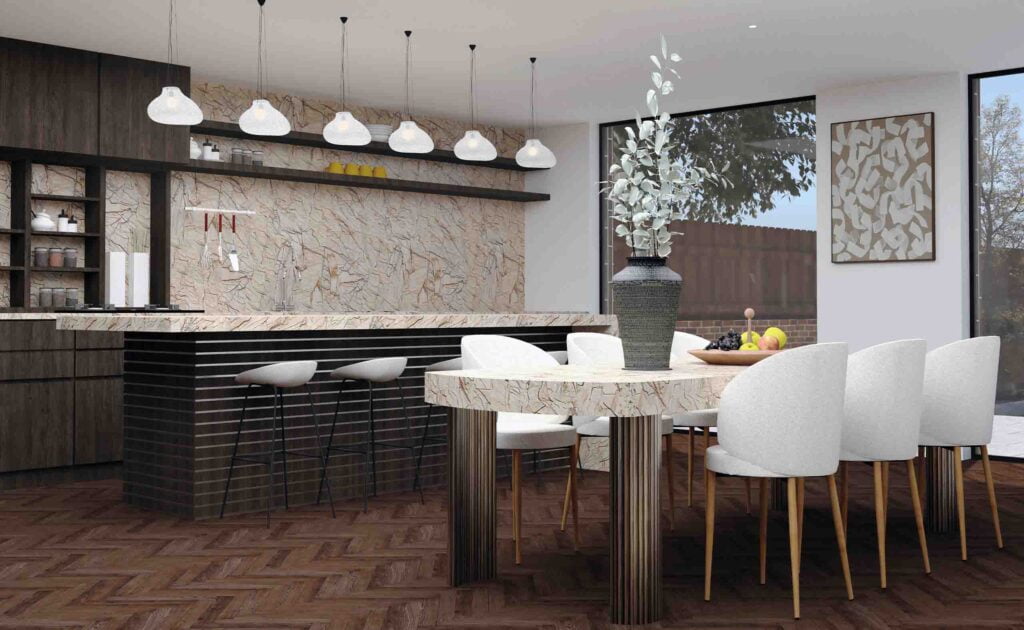
Eclectically Styled Kitchen Extension Design – Ribbon House
Kitchen Extension Hidden Costs
It’s easy to overlook the small things that can push your budget beyond its limits. Be on the lookout for:
- Landscaping: Extending your kitchen may mean rearranging your garden or patio, which can add several thousand pounds to your bill.
- Utilities upgrade: Large kitchen extensions often require an upgrade to your home’s plumbing, electrics, or heating system.
- Party wall agreements: If you’re extending on a boundary shared with a neighbour, you may need a party wall agreement, which can cost £1,000-£2,000 per neighbour.
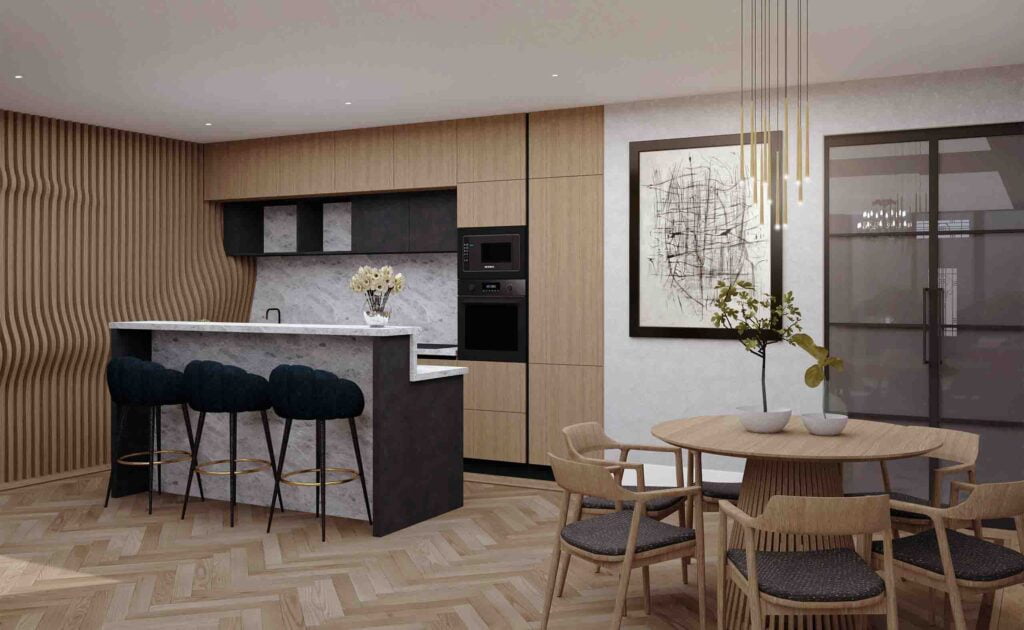
Small Modern Kitchen Extension – Monument House
Budget Contingency Tips – Kitchen Extension Cost
It’s always smart to include a contingency fund for unforeseen costs. A good rule of thumb is to set aside 10-15% of your total budget. Unexpected issues like foundation problems or material price increases can quickly blow your budget, so it’s better to be prepared.
Final Thoughts & Next Steps
A kitchen extension in London or Surrey can be a fantastic way to create more space and improve the value of your home, but it’s essential to budget carefully. By understanding the costs involved and planning for the unexpected, you’ll be better positioned to avoid costly surprises. If you’re considering a kitchen extension in 2026 and want expert advice, get in touch with DeVis Architecture today. We’ll guide you through the process from concept to completion, ensuring your project stays on budget and delivers the kitchen of your dreams.
